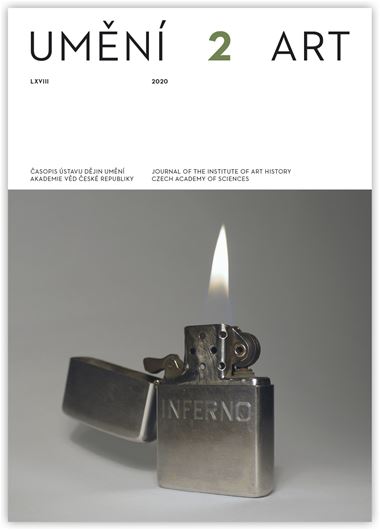Alena Kavčáková
Zdenka Burghauserová — Organiser of the Exhibitions of Czech Women Artists in Amsterdam and the Hague in 1929
Zdenka Burghauserová (1894–1960), whose very distinctive style as a painter made her conspicuous on the inter-war art scene, is now a half-forgotten figure in Czech art. A hundred years ago (1920), she was one of the founding and also most active members of the Circle of Woman Artists (Kruh výtvarných umělkyň). An edition of previously unnoticed letters from her partially surviving correspondence with Rosa Manus (an important leader of the Dutch and world women’s movement), Albertine van Aerssen (a member of the art committee of the Nederlandsche Vrouwenclub in Amsterdam), the ambassador in the Hague Miroslav Plesinger-Božinov and his wife, the painter Anna Plesingerová-Božinová, or with Vladimír Matějka, the first secretary of the Czechoslovak Embassy in the Hague, together with information in archives from the years 1928–1930, documents her energetic efforts to get the work of Czech women artists exhibited in the Netherlands. Although Zdenka Burghauserová’s private organisational work ran into trouble more than once as a result of her unconventional tactics and over-impulsive behaviour reflecting psychological stress caused by a difficult life situation at the time, it led to collaboration with Dutch women’s clubs and in 1929 to the successful realisation of exhibitions of the free and applied art of eleven Czech women artists in Amsterdam and the Hague. A temporary crisis in Zdenka Burghauserová’s personal and professional relations meant that unlike the presentation of the works of Czech women artists at exhibitions in Athens, Vienna and Buenos Aires, these exhibitions were not held under the aegis of the Women’s National Committee (Ženská národní rada) and the Circle of Women Artists. Together with those other exhibitions, however, they played an important role in the process of women’s emancipation in the field of Czechoslovak visual arts, where international ambitions fitted with the international political promotion of the democratic system of the young Czechoslovak Republic, and so gradually gained official state support in the later 1920s.
Alena Kavčáková: alena.kavcakova@upol.cz
Full-text in the Digital Library of the Czech Academy of Sciences:
https://kramerius.lib.cas.cz/uuid/uuid:cc38d80c-139a-4098-92ba-b02696e05df4
< back

